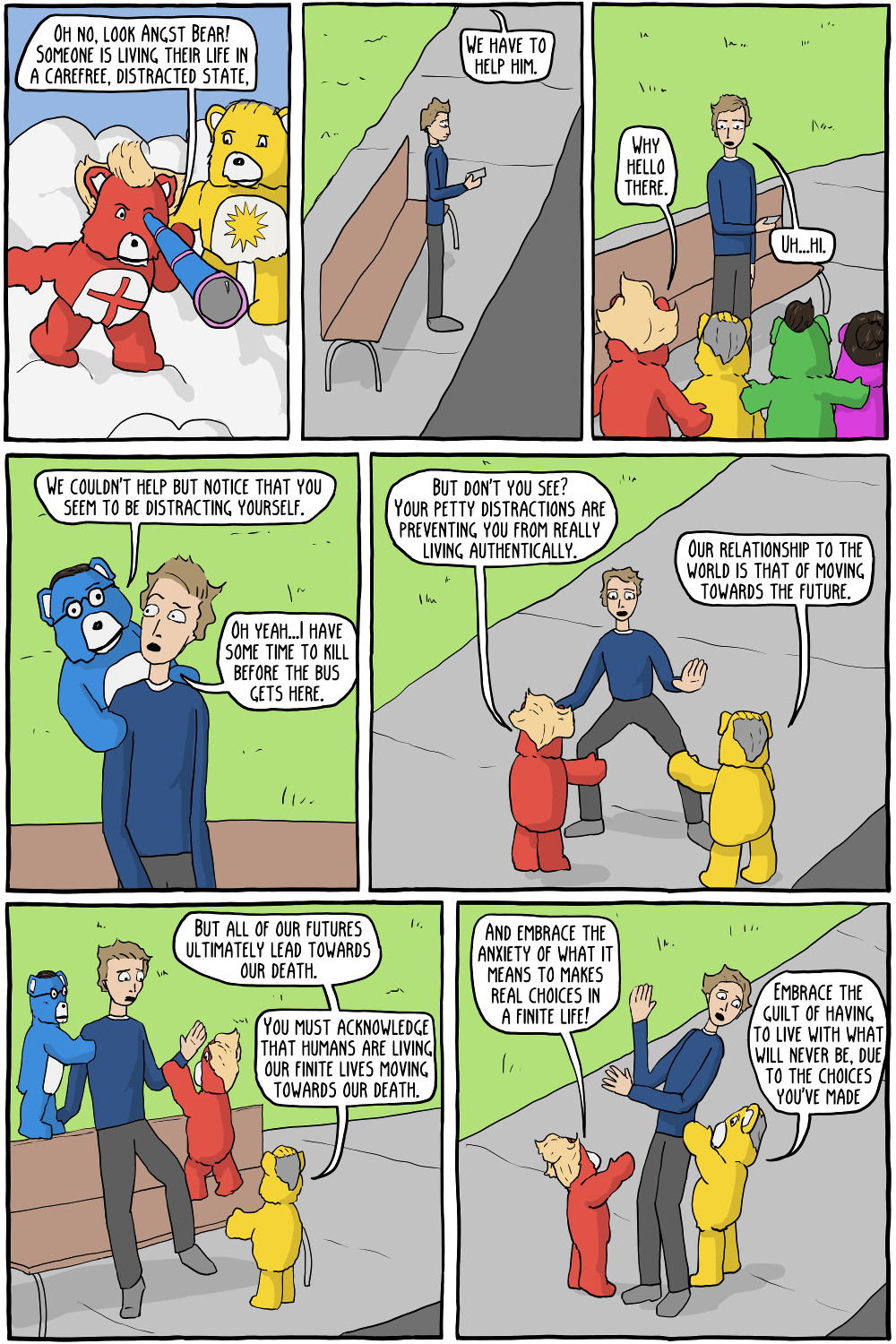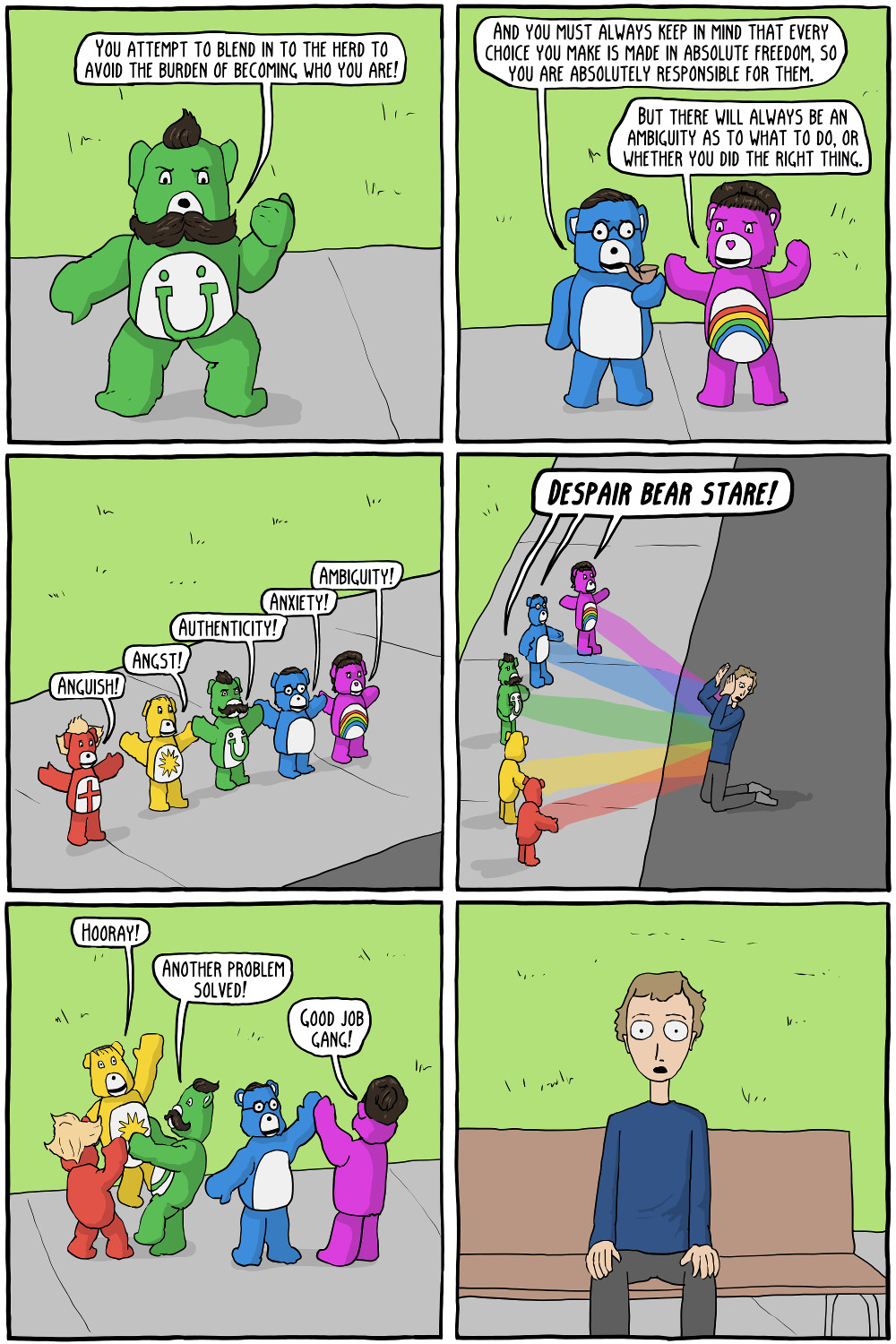

The Bears are: Kierkegaard (red), Heidegger (yellow), Nietzsche (green), Sartre (blue), and Beauvoir (pink). The symbols are a cross (Christianity), a U for ubermensh, and "nothing" for nothingness for Sartre. The other two symbols don't mean anything special.
For Heidegger, the way we understand the world is by understanding its possibilities. For example, I understand a hammer by understanding its possible use to me (driving in nails). When we apply this to ourselves however, we have to understand that our ultimate possibility is always death, so we can only understand our life through the lens of it culminating in our death. This is what he means by "Being-Towards-Death." This causes two things, first, the feeling of "angst" when looking at our future, because we know that we have only a finite amount of time, and we have to make choices with what to do with that time. For example, if we choose to marry instead of travel the world, we will forever live with that choice; and the fact that it effectively killed off the possible person who would travel the world. Angst, for Heidegger, wasn't necessarily a bad thing and shouldn't be avoided by distracting yourself and trying to think about other things. The other aspect of Being-Towards-Death is looking back at the past and reflecting on the decisions that we've made, this causes "guilt". Because each choice had cut off possible lives for us, and for those around us, we have to live with the guilt of choosing. I'm not the clearest on Heidegger, and this a very brief summary, but if you are interested in Heidegger you should watch Hubert Dreyfus's lecture series on YouTube, or just some shorter interviews with him. He is one of the best at explaining Heidegger clearly.
Kierkegaard was also big on how the act of making choices in our finite life would express itself as anxiety and anguish. Nietzsche thought we should not accept "herd morality" or anything else from the "herd", and forge our own path in life. Sartre emphasized that these choices stem from our freedom, and like the others, we should not run away from that freedom, but embrace it. In regarding moral questions, Beauvoir said that we can never have any certainly about what the right moral system is, or even how to apply a moral system to a given situation. Despite the fundamental ambiguity of what we should do, we must act anyway.
Permanent Link to this Comic: https://existentialcomics.com/comic/87
Support the comic on Patreon!










